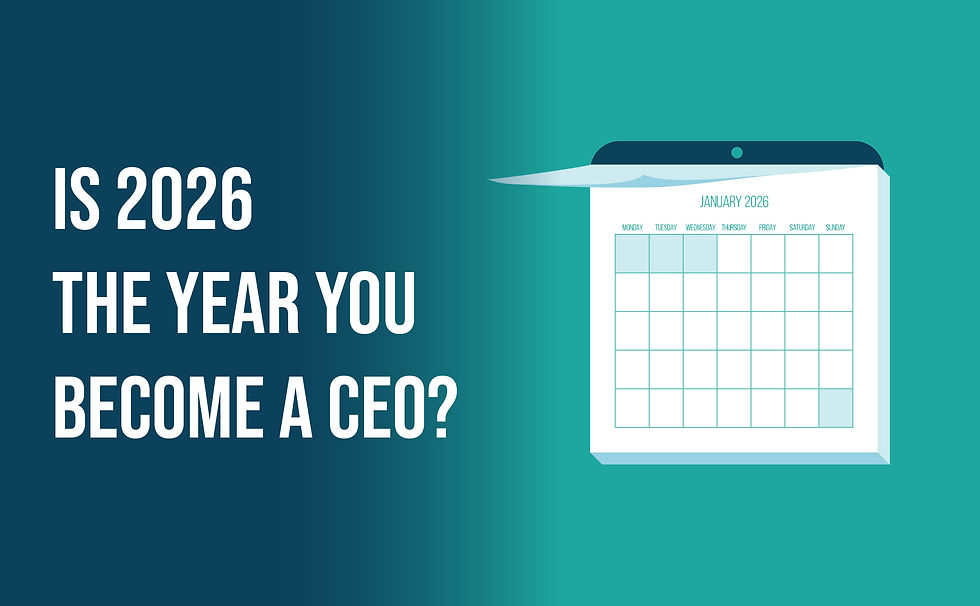What does hiring an executive look like from the other side of the table?
- May 30, 2024
- 3 min read
Updated: Sep 19, 2024

Imagine this. You’re an executive hiring manager looking to fill a leadership role. You’ve conducted five interviews and none of the candidates have been right. By this point, how do you feel? Possibly frustrated, anxious or just plain fed up, right?
Filling an executive role can be a rigorous, time-consuming process, and at the end of the day, the hiring manager wants candidates to excel. They want to find the right executive for the role and move forward with the appointment.
In this article, Executive Interview Coaching founder Richard Elstone explains what the executive hiring process is like from the hiring manager’s perspective. Richard offers a unique insight, as he has interviewed tens of thousands of people and appointed countless people in executive and non-executive roles as an executive search partner of 30-plus years.
What’s the executive hiring process?
Sometimes an organisation’s People and Culture department might do the hiring themselves, but more often they’ll outsource to an executive search partner.
A good search partner will take the time to draw out from the hiring executive to clearly understand what they’re looking for and the key challenges in the role. This will help the search partner reduce the pool of potential candidates to a handful of qualified people. “Without a search process, hiring managers usually have to interview a lot more people,” says Richard.
In some roles, for example many government jobs, there may only be one panel interview involved. More often, there will be two or more rounds of interviews.
Sometimes, there can be a series of up to seven interviews, plus case studies, especially if it’s a consulting company. There may also be peer-level interviews and subordinate input as part of the interview process.
At the end of the process, you may have to do a 30, 60, 90-day plan if you’re the preferred candidate. There may also be psychometric testing, and of course, the hiring manager or search consultant has to do reference checks, which can take 20 to 30 minutes each.
Bottom line: there’s a lot involved in an executive interview appointment.
What the search consultant or hiring manager wants to see
You never get a second chance to make a first impression, so make yours count. That means dressing for the position you want.
Wear a crisp, clean blouse or shirt and polish your shoes. Trim your beard if you have one. Choose the colours you wear wisely. You can find tips about how to dress appropriately for an executive interview in our previous blog.
Remember, if you look your best, you’re more likely to feel confident during the interview.
When you’re in the interview hot seat, the first question you’re likely to be asked is to tell the interviewer about yourself. This is your opportunity to really make an impact.
“Your answer to the ‘tell me about yourself’ question is really your sales pitch for being in the room for the interview,” says Richard. “What you say in that three to five minutes should sell you into the role. If it’s done well, you could well find that the interview tone will change and often this will mean it will feel less like an interview and more like a business discussion.”
Inevitably when you’re being hired for an executive role, your job is to solve a number of issues the company is facing.
Maybe the company wants to break into new markets. Maybe they need a new business strategy. Perhaps they’re looking to improve relationships with suppliers or with customers.
“Whatever the issues might be, there’s always a reason why you’re being hired as an executive and if you can find out and can include your experience around solving these issues in your three to five minute overview, then you’ll already be in a much better position than most of the candidates who come through. They want to know you have the experience necessary to do the job and fix the problem.”
If you’ve done your homework and refined your interview answers, you’ll feel more comfortable, as will the person interviewing you.
“As the interview unfolds, you’ll see the interviewer also relax because they will begin to feel that you are a good candidate for the role,” says Richard. “Everything you say will either confirm that or it won’t and you’ll cast doubt in their mind. Remember, the hiring executive wants you to be the right person, because they can then stop interviewing and get on with their own busy role.”
The most effective way to prepare for an executive interview is to invest in interview coaching with someone who has the expertise to steer you in the right direction.
As your coach, Richard will help you prepare, so that you’ll know what you’re going to be facing in the interview process.
To find out more, check out the Executive Interview Ready program or get in touch today.



